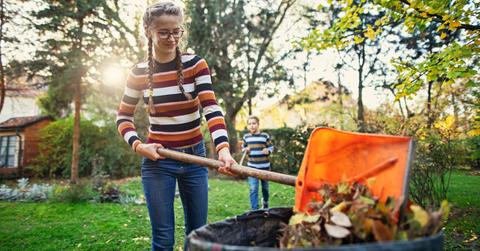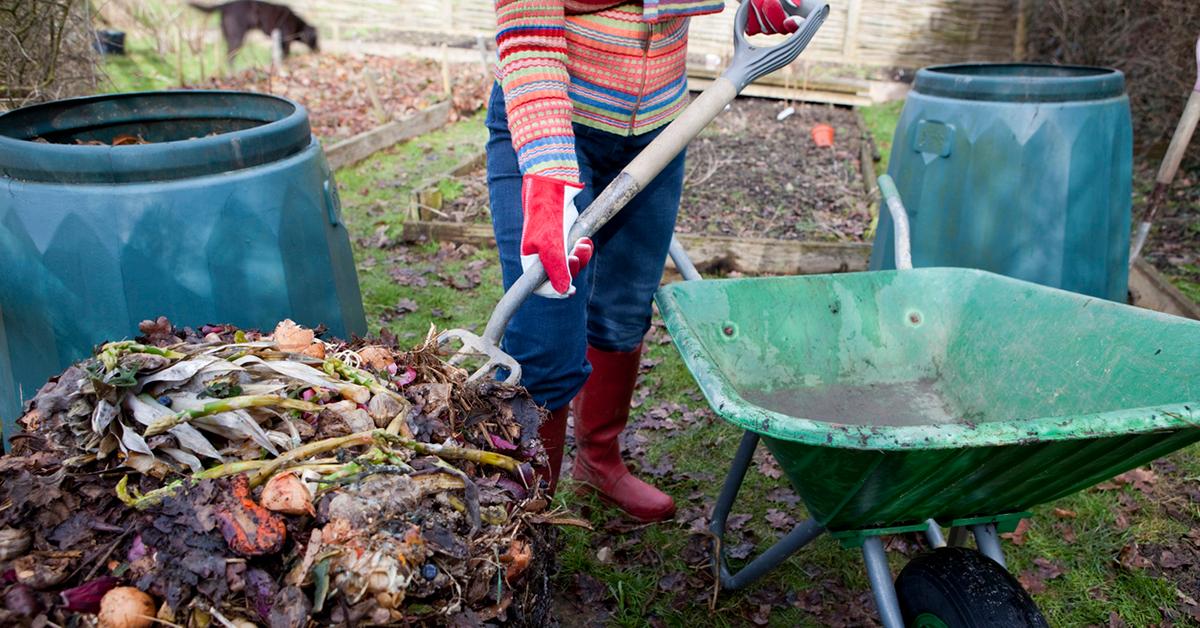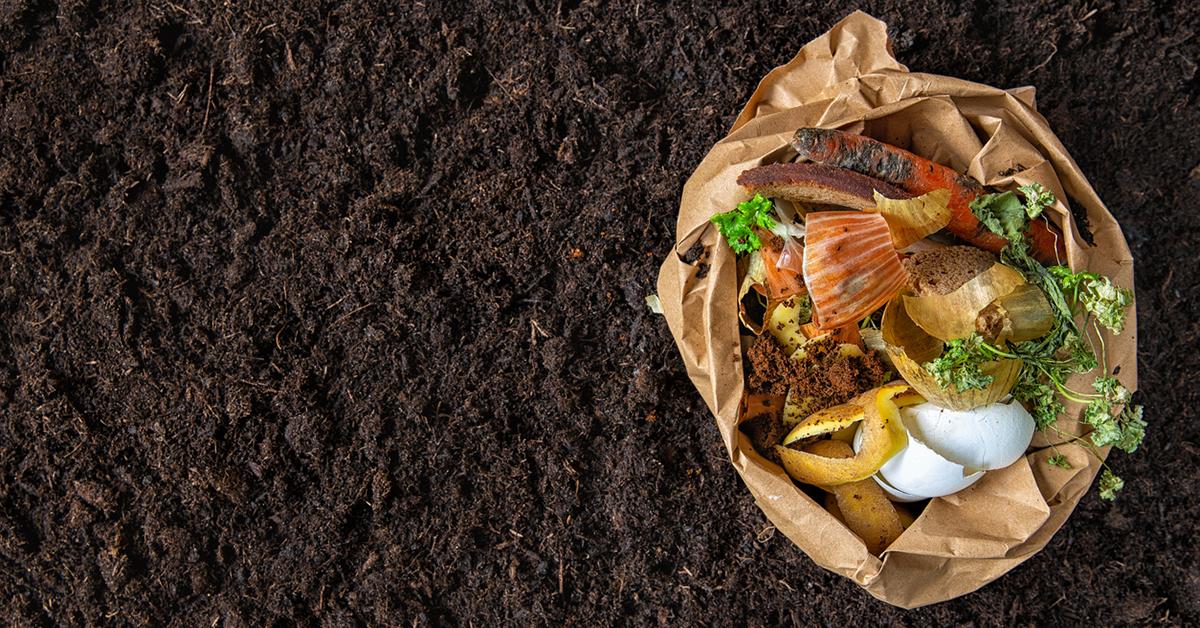How Long Does Compost Take to Break Down?
Our breakdown on how compost breaks down.
Updated April 22 2020, 4:06 p.m. ET

Unless you consider yourself a composting pro, it’s totally possible that you may have compost questions. Especially if you’re new to the game, and with more and more people turning to backyard composts since we’re homebound, at-home composts are on the rise and naturally, and people have more questions than ever. How does a compost really work and what do you need to know?
If you are a total compost newbie, we’ll start at the beginning: Compost is decayed organic matter that breaks down on its own, and when different organic matters are mixed together, it turns into nutrient-rich fertilizer or soil.
You can add almost any organic material to a compost but omit some animal-produced food scraps like dairy and meat — you may want to keep your dog’s feces away from the pile, too. Instead, add fruit and veggie scraps, eggshells, 100 percent real paper, and cardboard to the compost pile on the regular.
Keep reading for answers to frequently asked questions about compost.
How long does compost take to break down?
Different foods and compostable items break down according to different time frames. It also depends how you’re composting, too. Some composting bins use the help of worms, which eat the scraps, breaking them down faster, while others rely solely on the elements.
Composted items can take anywhere for four weeks to 12 months to decompose. So, since different items (and compost) work on different timelines, how do you know when your compost is finished? The easy answer is that it should look like topsoil — dark and crumbly, like dirt. The more difficult answer is that you can test it out. Put a handful of the compost into a sealed plastic bag. In three days, if you open the bag and it smells sour, it’s not done yet. If it smells earthy, like dirt, then indeed your compost is finished and ready to go.
Some food items might not fully be broken down, but that’s okay. Foods like corn cobs might take a little longer, but even if it’s showing as a big piece, the compost could still technically be ready to use.
Which ingredients break down in compost the quickest?

In order to encourage your compost to break down quicker, you need to have a carbon to nitrogen ratio of 20:1, according to Gardeners.com. Adding nitrogen-rich items to your compost will do two things — it will help keep the compost from getting too moist and it will fasten the rate at which it breaks down. But adding carbon-rich items to the compost is also important, too. Some carbon-rich items to add to your compost to keep it running (and breaking down) smoothly are corn stalks, dry leaves, sawdust, and shredded paper.
That being said, it’s not always the ingredient or material that breaks down at a certain rate. Size also matters, too. As you can guess, smaller materials break down quicker. It makes sense, right? There’s less of it to break down, so the worms and other microorganisms doing the heavy lifting in your compost have to work less to break down smaller materials than bigger materials. So, to get your compost to break down faster, you can shred your materials into smaller bits. If you’re adding something like dry leaves to the compost, you can use a leaf shredder or lawnmower to make the leaf bits smaller. If you’re adding food scraps from cooking, you can take care to cut the scraps up with a knife before adding to the compost. Don’t want to go through it with a knife? Gardeners.com also recommends putting kitchen scraps through the blender before adding to the compost.
Need even more help encouraging your compost to break down quicker? You can add manure, a nitrogen-rich organic material to the top of your compost bin to speed things up. Not everyone is all for this idea as adding manure could introduce new strains of bacteria, Gardeners.com reports, but if nothing else is working for you, it might be worth a shot.
Can compost be used as mulch?
Compost can be used as mulch, but there are some main differences between the two. Generally, the nutrients in compost are more ideally used when they can get down deep in the soil to feed plants via their roots. Mulch, comparatively, sits on top of a layer of soil.
Still, it’s fine to use compost as mulch. You can also combine a bit of compost with mulch and chopped-up leaves to keep it somewhat moist. Moist compost ensures that the compost is feeding your plants the appropriate nutrients.
Can compost be used as potting soil?
Compost can be used as potting soil, but because it needs to be wet, it may cause your plants to rot or mold. That’s why it is better to mix compost with another kind of potting soil, rather than using it on its own. Mixing topsoil with compost ensures your plants get the most nutrients possible, without retaining too much moisture or developing mold or rot.
Can compost get wet?

Your compost should never be too wet, slimy, or smell sour. But, yes, compost can get wet. In fact, it should be a little bit moist.
If you have an extremely wet compost, it may be because of what you’re putting in your compost pile. Things that clump together when they’re soaked may cause a compost pile to get too wet — grass clippings and leaves, for example.
Wet composts can also happen because of other factors, not just what you’re adding to the compost pile. If your compost pile is soaking wet to the touch, it may be because of a lack of air flow or a lack of nitrogen. To add more nitrogen to your compost pile, you just have to add a few nitrogen-rich ingredients such as coffee grounds or used paper coffee filters, egg shells, cut flowers, fruit rinds and cores, alfalfa hay, nut shells, seaweed, and even a few clumps of hair – pet hair or human hair will work fine.
Your compost pile should not smell moldy or sour. It should smell earthy, look like dark-brown soil, and should not hold too much moisture.